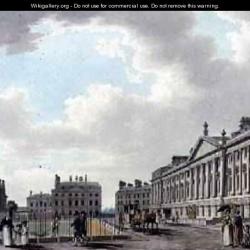
Bath (and the reinvention of spa sociability)
COSSIC Annick
The ancient city of Bath renowned for its waters ever since the Roman era played a decisive role in reinventing spa sociability in the first half of the eighteenth century. At a time when the British nation was being forged, manners were crucial in the rivalry with France, as they were redefined in an attempt to create a distinct model of sociability.
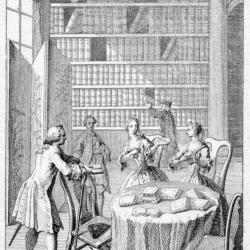
Bookshops in London
JETTOT Stéphane
London Bookshops are no longer seen restrictively as retailing and publishing venues where books were made and sold. Whether it be in the City or in the polite West End, they fulfilled a wide range of functions (mail, banking, politics). Their crucial significance in various social circles could be best explained by the connections to other public places such as coffee-houses, taverns, markets and many cultural institutions (clubs, libraries, antiquarian circles).
![John Lodge, ‘Mr. Garrick delivering his Ode at Drury Lane Theatre on dedicating a building & erecting a statue to Shakespeare [graphic]’, Yale University Library, Lewis Walpole Library, 770.09.00.06, [1770?]. Drury Lane](/sites/default/files/styles/notice_teaser/public/notices/DL%20garde%203.jpg?h=228311bc&itok=xeIGJLtQ)
Drury Lane
RITCHIE Leslie
At London’s Theatre Royal, Drury Lane, sociability practices were realized, queried and transformed by actors and audiences. This entry describes the theatre’s physical spaces, then considers modes of sociability within the theatre, from normative theatre-going practices to disruptions such as riots.
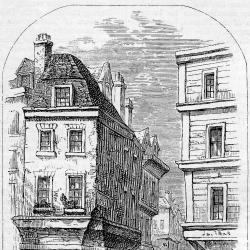
Grub Street
DOMSCH Sebastian
Grub Street was originally a real place, an existing street in London in the Cripplegate area, that derived its name from the refuse ditch (grub) that ran alongside. It had a high concentration of taverns, dosshouses, coffeehouses, and brothels – as well as publishers, booksellers, and authors.
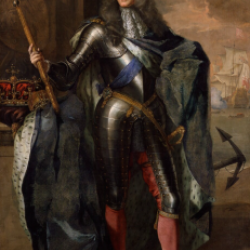
James, Duke of York and Albany (and court culture in Edinburgh)
JUILLET-GARZON Sabrina
This entry explains how the stay of James, Duke of York and Albany, and his court in Edinburgh (1679-1682) changed some of the forms of sociability. Indeed, it refashioned a royal court in the Scottish capital at a time when the merchant class had come to be the elite.
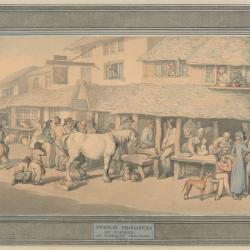
Parole towns in Britain
COPPINS Abigail
During Britain’s war with Revolutionary and Napoleonic France (1793-1815), thousands of captured French officers and other captives were placed on parole in towns across the British Isles. Paroled, sometimes for many years, these captives organised social functions, created theatre productions and started Masonic lodges with their British hosts.